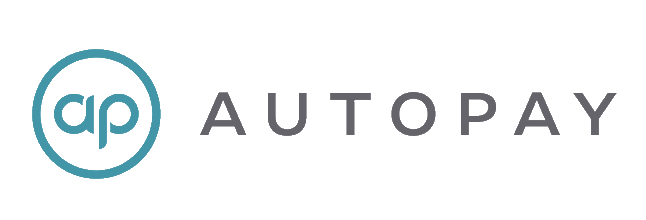When financing a car, you can choose between a personal loan or an auto loan. Auto loans are secured by the vehicle, often with lower rates, while personal loans are unsecured and offer more flexibility.
In this guide, we’ll compare both options to help you decide which one fits your needs.
Table of Contents
Personal loan vs. auto loan
Personal loans and auto loans can help you buy a new or used vehicle. Both are available from traditional banks, credit unions, and online lenders. Auto dealerships may also offer in-house financing.
Here’s how personal loans and auto loans compare at a glance.
| Personal loan | Auto loan | |
| Rates | 6.98% – 35.99%* | 5.34% – 21.55%* |
| Loan amounts | $1,000 – $100,000 | $5,000 up to the manufacturer’s suggested retail price (MSRP) |
| Repayment terms | 12 – 84 months | 1 – 85+ months |
| Down payment | None | 10% – 20% is often expected but not always required |
| Collateral | Not required for unsecured loans; secured personal loans require collateral | Your vehicle is the collateral |
| Minimum credit score | Typically 620; some lenders accept borrowers with lower scores | Typically 600; some lenders accept borrowers with lower scores |
How do auto loans work to buy a car?
Auto loans let you buy the vehicle of your choice, using the car as collateral for financing. You’ll repay the loan according to the lender’s terms.
Here’s how the process works.
1. Set your budget
Estimate your car-buying budget. A car loan calculator can give you an idea of what you might pay monthly based on different loan terms.
2. Choose a financing option
You might get an auto loan from your current bank, a local credit union, an online lender, or a dealership. Comparing interest rates and loan terms for each option can help you decide which one aligns with your budget.
3. Apply
Once you decide where to get auto financing, you can apply. Depending on the lender, approval might take a few minutes or days.
4. Sign the paperwork
Once you’re approved for an auto loan, you’ll sign the paperwork and hand over your down payment.
5. Repay the loan
You’ll make monthly payments to your lender until you’ve paid off the loan. You can check with your lender to see whether a rate discount is available for enrolling in automatic payments.
Pros and cons of using an auto loan for a car
Auto loans are designed to help you buy a car, but they have advantages and drawbacks.
Pros
-
Low rates
Car loans may offer lower rates because the vehicle serves as collateral. Some dealerships also offer promotional financing as low as 0% APR for a certain period.
-
High loan limits
You might qualify for a higher financing amount than you would with a personal loan, which can help if you plan to buy a more expensive vehicle.
-
Down payment
Some lenders offer promotions that let you buy a vehicle with no money down. However, 100% financing could raise your rate and make your payments more expensive.
-
Easier approval
Getting approved for an auto loan can be easier because the secured nature of the loan gives a lender collateral.
Cons
-
Vehicle loss
If you fail to make the payments on an auto loan, your lender could repossess the vehicle.
-
Depreciation
Vehicles are depreciating assets, so consider whether you’re comfortable taking out a long-term loan for a car that may lose most of its value before you pay it off.
Can you use a personal loan to buy a car?
Yes: Personal loans offer flexibility because you can use the money for almost anything, including buying a car. It could be worth considering if you qualify for better terms than with an auto loan or if you can’t get approval for a traditional vehicle loan.
How do personal loans work for a car?
Here are the steps to get a personal loan to buy a car.
1. Estimate your budget
You’ll need to know how much you plan to spend on a vehicle. When setting your budget, you can use a tool such as Kelley Blue Book to compare new and used vehicle prices.
2. Compare rates
Personal loan rates vary by lender; the best rate is the lowest one you can qualify for based on your credit score. You might start your search by checking personal loan rates at your bank, then cast the net wider to include other lenders.
3. Get preapproved
Personal loan preapproval means a lender has given you a conditional offer. Preapproval can give you an idea of how much you can borrow and the interest rate you’ll pay.
4. Apply
You can submit a personal loan application once you find a lender. Most lenders allow you to do this online, which takes just a few minutes.
5. Get the funds and make your purchase
If you’re approved for a personal loan, wait for the money to be deposited into your bank account. Once the deposit clears, you can write a check or get an official check from your bank to cover the vehicle purchase amount.
6. Repay the loan
Make payments according to the lender’s schedule. Be aware of any penalty fees for paying your loan late or early.
Pros and cons of using a personal loan for a car
Using a personal loan versus an auto loan to buy a car has advantages and disadvantages.
Pros
-
No down payment
Personal loans don’t require a down payment like car loans, so you won’t pay anything upfront.
-
No collateral
If you’re using an unsecured personal loan to buy a car, you won’t need to give the lender collateral.
-
Fast funding
Some lenders may deposit loan funds into your bank account as soon as the same day you’re approved or the next business day.
Cons
-
Higher rates
Personal loans may charge higher rates than auto loans since there’s no collateral to back them up.
-
Higher payments
A higher rate can translate to a higher monthly payment, which could strain your budget.
-
More difficult approval
Getting approved for a personal loan may be more difficult if you have fair or poor credit because you don’t have collateral. Approval can be easier for an auto loan, especially through a dealer, because it can repossess the vehicle if you don’t make payments.
Auto loan vs. personal loan: Which is right for you?
Auto loans and personal loans can help you get on the road, but only one might be best for your situation. Looking at your finances and needs can help you decide which route to take.
| If… | Consider |
| You can’t or don’t want to put money down on a car | Personal loan |
| You don’t want to risk repossession if you fall behind on payments | Personal loan |
| You have excellent credit | Auto loan (assuming rates are lower than personal loans) |
| You have extra cash to put toward a down payment | Auto loan (you could qualify for lower rates with a larger down payment) |
Go back to your budget and consider how much you can afford to pay monthly and how much interest you’re comfortable paying overall. It’s also helpful to check your credit beforehand to get a sense of what rates you might qualify for.
Some banks charge underlying fees associated with processing, the amount of the loan, or based on the timing of when you use the loan funds.
Auto loan fees tend to be laid out clearly on the paperwork you sign to purchase and finance the vehicle.
The key with either loan is to spend time looking through the paperwork to understand the fees you’re paying and why. In some cases, especially with auto loans, if you push back on certain fees, such as admin fees, you can get them reduced or waived. So just be aware of what is included, ask questions if you don’t understand something, and see whether there’s flexibility in the amount or the ability to waive certain fees.
Rand Millwood, CFP®
Where to find the best auto or personal loans for your car purchase
Whether you choose a personal or auto loan to buy a car, take time to shop around. Estimate your payments with different loan terms, and check rates with multiple lenders. If you’re getting rate quotes, look for lenders that don’t require a hard credit check.
Best auto loans
| Company | Best for… | Rating (0-5) |
|---|---|---|

|
Best for comparison shopping |
|

|
Best for no vehicle restrictions |
|

|
Best for lifetime financing |
|

|
Best for bad credit |
|
Best personal loans
| Company | Best for… | Rating (0-5) |
|---|---|---|
|
|
Best marketplace |
|

|
Best for good credit |
|

|
Best for fair credit |
|

|
Best for excellent credit |
|

|
Best for thin credit |
|

|
Best for credit card debt |
|

|
Best for a secured loan |
|
For more information, check out our research on the best personal loans and best auto loans.
About our contributors
-
 Written by Rebecca Lake, CEPF®
Written by Rebecca Lake, CEPF®Rebecca Lake is a certified educator in personal finance (CEPF®) and freelance writer specializing in finance.
-
 Edited by Kristen Barrett, MAT
Edited by Kristen Barrett, MATKristen Barrett is a managing editor at LendEDU. She lives in Cincinnati, Ohio, with her wife and their three senior rescue dogs. She has edited and written personal finance content since 2015.
-
 Reviewed by Rand Millwood, CFP®
Reviewed by Rand Millwood, CFP®Rand Millwood, CFP®, CIMA®, AIF®, is a partner at Guardian Wealth Partners in Raleigh, North Carolina. His firm assists clients of all ages and areas of life (with a strong background in the medical and legal fields) in planning, investing, and preparing for retirement and other financial goals.